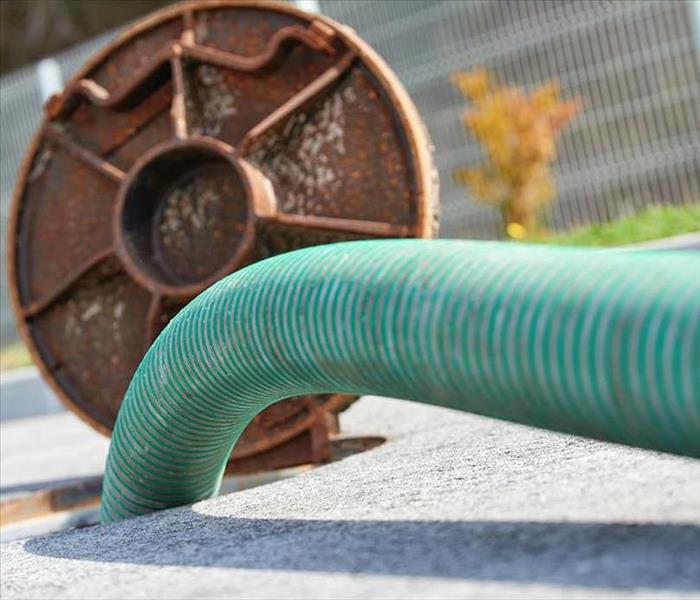3 Things to Know About Black Water
8/31/2020 (Permalink)
 Black water has come into contact with septic matter, such as a toilet or sewer, and can carry pathogens, bacteria, fungi, and harsh chemicals.
Black water has come into contact with septic matter, such as a toilet or sewer, and can carry pathogens, bacteria, fungi, and harsh chemicals.
Not all water is created equal. When water damages your home, it is important to know the source and classification of the water. Water from a tainted source is categorized as black, which can mean several things for your home. Here are the three things to know about this type of water:
- What is black water?
Water is categorized into three areas depending on its use: black, grey, or white. These classifications indicate the types of contaminants in the water. White water is safe for everyday use, while grey water can be used for cooking, cleaning, or bathing. It may contain soap, cooking oils or light cleaners. Black water has come into contact with septic matter, such as a toilet or sewer, and can carry pathogens, bacteria, fungi, and harsh chemicals.
- Where does black water come from?
Highly contaminated water can come from multiple sources. A common source is flooding. Any water source that has come in contact with fecal matter must be categorized as black. With flooding, rainwater mixes with sewer water that carries human waste and other contaminants. Water that comes from a septic system, sewer, or even livestock pasture falls into this category.
- What can I do about flooding in my home?
If you have flooding in your home, you will need to make sure that everything is properly cleaned, sanitized, and restored. You should avoid contact with it and wear protective gear if you plan to clean it up. Any food that came into contact with the water should be thrown away. Canned foods that are completely sealed and not damaged or dented may be able to be saved. Due to the high levels of contamination found in flood waters, it is safest to have a professional perform the cleanup. This cleaning process helps insure your home is clear of contamination and that issues common to water damaged areas, such as mold, are prevented.
When dealing with water damage in Crawford and NE Venango County, it’s important to know the classification of the water so you can be properly protected. When you know this, along with the potential sources of the flooding, you can begin taking the proper steps needed to clean, sanitize, and restore your home.
Should you need help, SERVPRO of Crawford and NE Venango County is ready to help 24 hours a day, 7 days a week! We are water and fire mitigation experts and will get the job done quickly and efficiently. Trust SERVPRO of Crawford and NE Venango County with flooding and water damage!
Call us at (814) 350 7651
Visit our Facebook page






 24/7 Emergency Service
24/7 Emergency Service